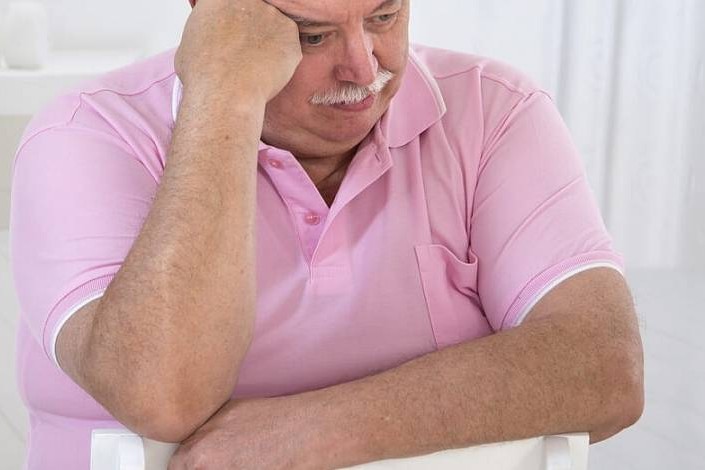Any surgical intervention leads to tissue damage and is stressful for the body. Even if the operation is well planned, it is impossible to predict its course step by step, since this is influenced by the anatomical features of each person, the accuracy of the diagnosis and the purpose of the intervention. Therefore, in the postoperative period, a person may face some side effects associated with surgery or preparation for it (bladder catheterization, etc.). Many side effects, including urinary incontinence, are often reversible and can be easily corrected.
Different surgical procedures carry a different degree of risk of incontinence. After some surgical procedures, the probability of incontinence can reach 60%. But often this is a reversible phenomenon, and to get rid of it takes time and proper treatment.
Why incontinence occurs after surgery
Postoperative incontinence is of a stressful type. It can be associated with damage or disruption of the urinary tract sphincters.
In men, difficulties with urination control appear after surgical treatment of prostate diseases, urolithiasis, or urethral surgery.
In women, the reason is also surgery on the organs of the genitourinary system, including the uterus and bladder. Surgical manipulations for rectal diseases can sometimes cause incontinence.
What are the manifestations of stress incontinence?
Depending on the severity of the problem, incontinence can manifest itself as a drop of urine from a few drops to half a glass or more. The factors that provoke urine leakage can be any tension of the muscles of the abdominal wall and an increase in intra-abdominal pressure, for example, when coughing, sneezing, laughing, lifting weights.
Symptoms of incontinence can also be provoked by hypothermia, stress and emotional stress, the sound of running water, or simply a change in body position. The suddenness of manifestations of incontinence becomes the reason for emotional experiences and tense anticipation of the next episode.
How to relieve stress during incontinence
Getting rid of urinary control problems takes time and following medical advice. But no one wants to limit their daily activities and refuse to work, study or an active lifestyle for the entire period of treatment. Special absorbent hygiene products help you to do your usual things without constant psycho-emotional stress associated with the fear that the problem will suddenly force you to change plans.
For people with an active lifestyle, for mild incontinence, the iD LIGHT urological pads come in handy . If there is more abundant urine leakage, you can use the iD PANTS , which do not restrict freedom of movement and are not visible under clothes. For patients who spend most of their time in bed due to the severity of the condition or movement disorders, the iD SLIP adult diapers are suitable . The wide range of iD brand products offers absorbent products for all body types and incontinence levels.
Postoperative incontinence treatment
Impaired control of urination, which has arisen in the postoperative period, in most cases, can be successfully treated. Sometimes the problem disappears on its own within six months after the operation. But you should not let the process go by itself, it is better to notify the doctor as early as possible so that he can help start to deal with the problem correctly. So that during the entire period of rehabilitation, incontinence does not become a difficult test and a source of depression for a person, it is necessary to use absorbent agents that will help you feel comfort and confidence until complete recovery.
Treatment methods
The choice of treatment method will depend on many factors that only the doctor can take into account (the severity of incontinence, concomitant diseases, examination data, etc.). In many cases, the choice is made in favor of drug therapy, physical therapy and exercises to strengthen the muscles of the pelvic floor. In some situations, surgery may be necessary to improve urinary control.
Lifestyle correction
Additional measures to help improve urinary control include: quitting smoking, limiting alcohol and caffeinated beverages, eating a healthy diet that avoids spicy, smoked, and overly salty foods, drinking regimen, staying asleep and resting, and normalizing body weight.
Folk remedies
It is quite enough if you strictly follow all the recommendations of your doctor. But if you really want to resort to folk remedies for combating incontinence, opt for herbal medicine (herbal preparations with rose hips, licorice, currants, birch, bearberry, St. John’s wort, etc.). Remember that not all herbs are compatible with the medications you are taking. If there are concomitant diseases, then some herbal medicine may be contraindicated for you. Therefore, you cannot arbitrarily add new methods to treatment without consulting your doctor.
All patients who have encountered the problem of urinary incontinence in the postoperative period, special disposable absorbent personal hygiene products will help to maintain a sense of comfort and protect the skin from irritation. With their help, you can stop concentrating on waiting for the manifestations of urinary incontinence, and focus on recovery and rehabilitation procedures. Modern medicine in many cases has learned to successfully solve the problems of postoperative incontinence, but for this it is necessary to inform a specialist about the existing difficulties as early as possible.


